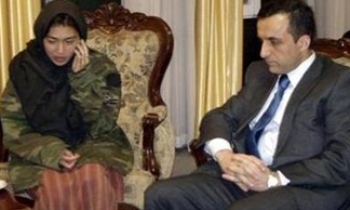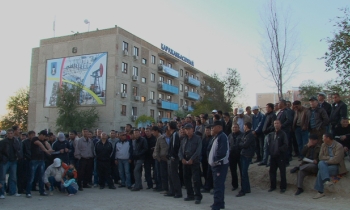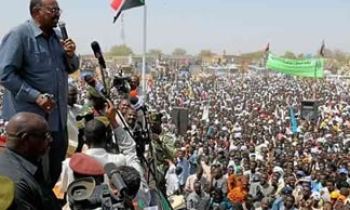The managing director of the Islamic Republic News Agency (IRNA) in a meeting with a number of reporters and officials in charge of the Russian television networks here Saturday called for expansion of media cooperation between Iran and Russia.
Ahmad Khademolmelleh added that to change the unilateral flow of information from west to developing countries into a bilateral and fair process, he is looking for media allies.
"We believe that the western media have launched a one-way flow of information in the world and unfairly administer the world public opinion in the interest of their own governments," he added.
Officials in charge and correspondents from Russia's television networks including ORT, RTR, NTV, RNTV, Moscow Central TV and Saint Petersburg Network are visiting Tehran at the official invitation of the Islamic Culture and Relations Organization.
Khademolmelleh referred to Russia and its media as an ally in order to change the one-way flow of the media to the benefit of the regional people.
Concerning censorship, he said that in the world of today, it is impossible to censor the news, while in the world media, in particular the western mass media, modern ways of censorship are underway in a complicated way and they either overestimate or underestimate them without pointing to their global significance.
Turning to the victory of Islamic Revolution in Iran, he said that given that the Iranian revolutionary forces did not have any media tools at the time, the western media reflected the relevant news as they wished, which still holds true except that today Iran has a well-established media.
He referred to the `era of explosion of information' and said that with their bombardment of information the western media are responsible for the pollution of information encountering the public opinion of developing countries hampering the access of the relevant addressees to the actual events among piles of the information being released.
"Censorship in the world of today is not only wrong, but is impossible, given the considerable progress made in the communication technology enabling dispatch of every piece of news to the world's remotest places in a matter of a few seconds," he added.
In response to a question raised by the reporter of Russia's NTV channel whether all the Iranian media are affiliated to the government, he said that there are private and state media in Iran and that each of them have their own policy.
"Some segments of the press may be of the same idea on some subject, while several others may be against it. Taking into view that progress can be achieved through healthy and constructive criticism, some of the measures taken by the government are criticized.
"To us there is a distinction between criticizing the government's performance and undermining it, since nothing can be achieved without criticism," he added.
Khademolmelleh noted that nowhere in the world, do the media ignore their own national interests and rather admitted that the Iranian media act with more freedom than the US media.
"Seventy percent of the US media, which are sponsored by the country's trade and industry sector, act in line with the interests of their sponsors rather than those of the people.
"The western media's criticism of the president and government in Iran is incomparable to other countries. Here, the officials in charge welcome criticism and even respond to the critics," he added.
Replying to the question of ORT Network reporter about the meaning of power in the present world, he said, "The world of today does not comprise five continents, rather the sixth one, known as the `continent of internet' has been formed in the present century.
As an instructor of Communications Sciences at the School of Media Studies affiliated to IRNA, Khademolmelleh said that in the sixth continent, everything created is based on information, where more informed individuals are more successful.
Concerning the changes in the national media after the recent presidential election, he said that the media act according to their internal management policies and that as usual some are pro-government and others criticize it.
He castigated the western media's rebuke of President Mahmoud Ahmadinejad and said that he realizes the significance of the media and supports the freedom of press and approves of criticism by the media in Iran.
Asked whether the publication of news in the press is controlled by any organ, he said that everywhere in the world, the governments have a red line and that in Iran it is indicated by the Supreme National Security Council.
"If any daily violates the press law and a complaint is filed against it, the case will be referred to the court, where the jury comprising media and legal experts make free judgment on it," he added.
Responding to another correspondent about "whether there is such freedom in Iran to allow the Israeli prime minister to deliver a speech in the country," he said, "We have a special approach towards the Zionist regime and do not recognize it at all to let any Israeli official speak in our country."
Meanwhile, Khademolmelleh underlined that IRNA is prepared to expand its technical and professional contacts with the Russian media in various fields.









